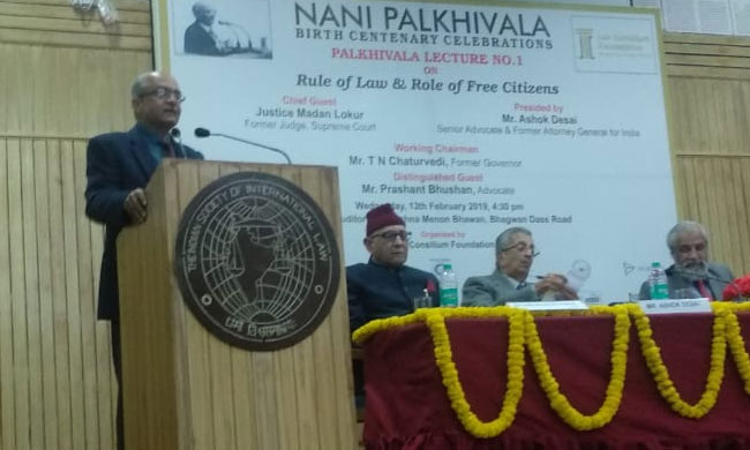The Law Of Sedition Is Being Misused Against Those Who Criticise The Establishment: Prashant Bhushan
LIVELAW NEWS NETWORK
13 Feb 2019 8:29 PM IST

"The law of sedition is being misused against those who criticise or lampoon the establishment and politicians in power. Draconian laws like UAPA and NSA are being used to imprison and prevent bail from being granted to dalit activists like Chandra Shekar from the Bhim Army or some of the most respected human rights activists and lawyers like Sudha Bharadwaj, Surendra Gadling, Shoma Sen, etc. Killing people from minority communities in the guise of encounters has become the order of the day, especially in Uttar Pradesh".
Next Story


